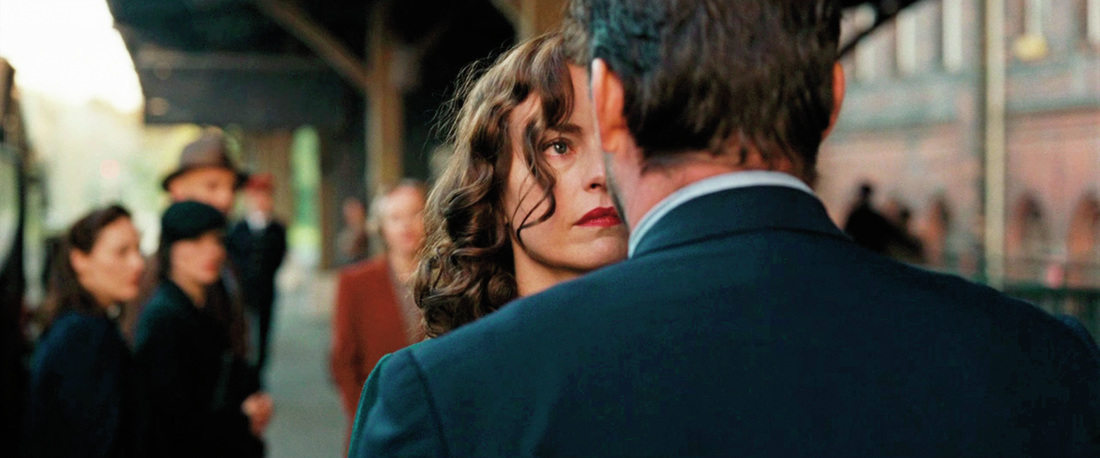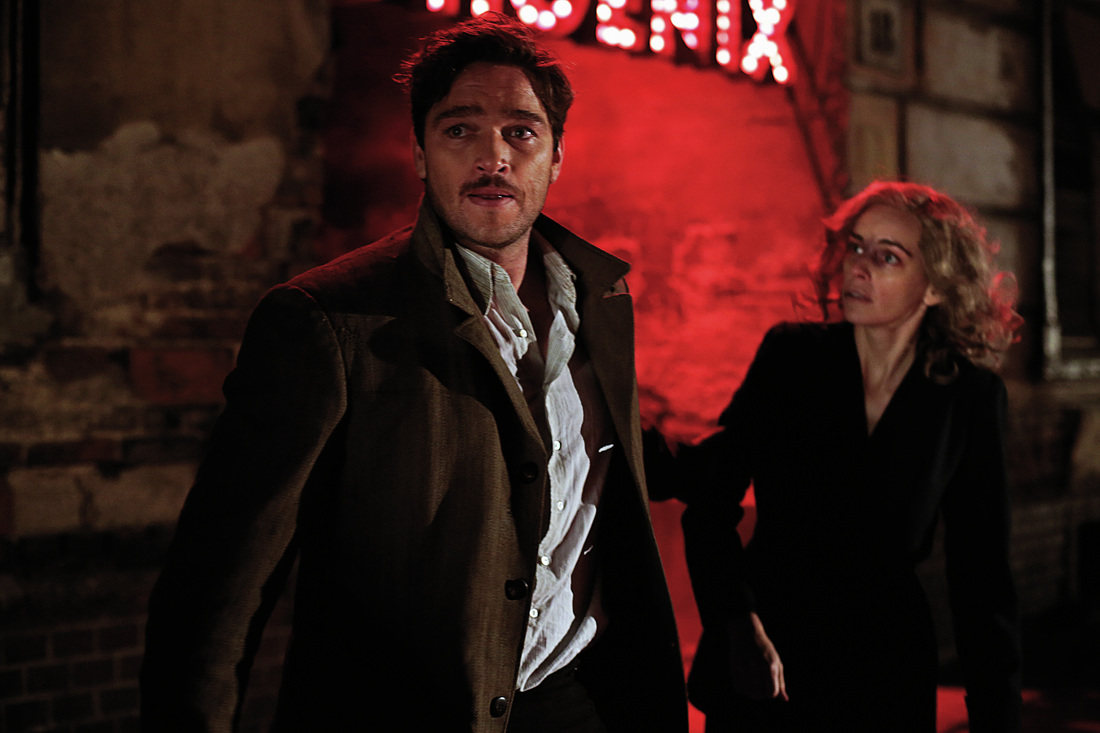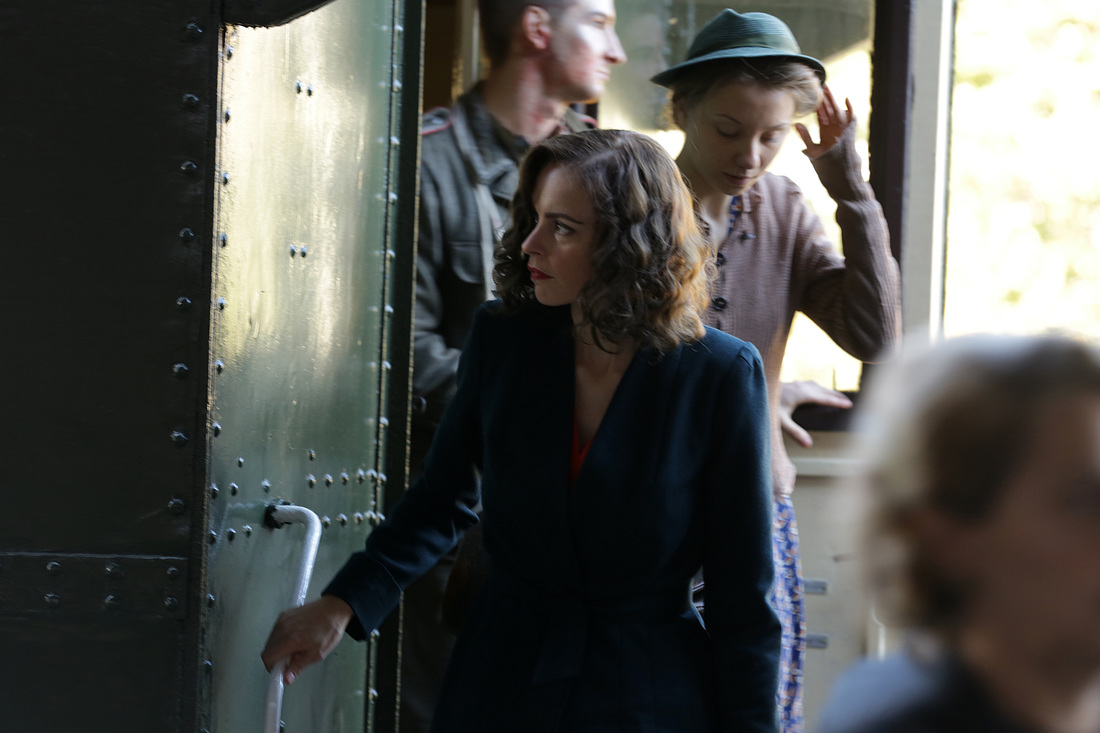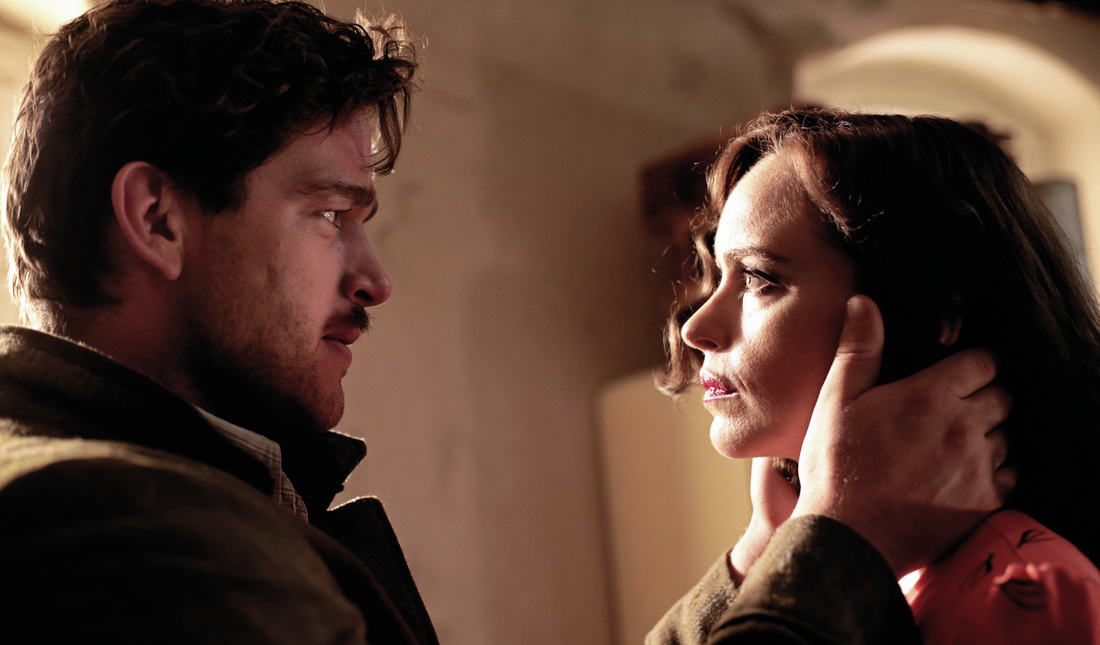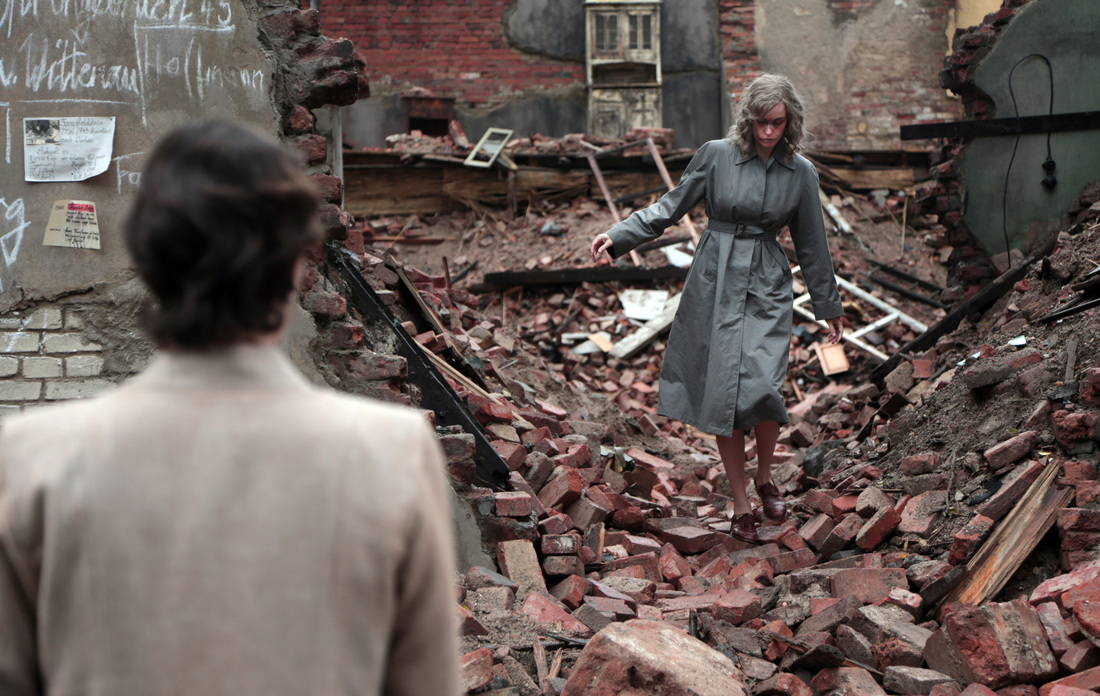|
How entertaining? ★★★☆☆
Thought provoking? ★★★☆☆ 6 April 2015
This article is a review of PHOENIX. |
“I can’t stand German songs anymore,” Lene Winter (Nina Kunzendorf)
The unspoken. The space in between words. There is where director Christian Petzold excels in, aided by simpatico collaborator, actress Nina Hoss. Articulating the immediate aftermath of the horrors of the Holocaust is conveyed through ellipses; deftly allowing audience imagination to fill the gaps. That Stanley Kubrick never made THE ARYAN PAPERS shows the complexity of fathoming such atrocity.
Visage heavily bandaged, having been shattered, freed concentration camp detainee Nelly Lenz (Hoss) is being driven to a clinic for facial reconstruction surgery. Only once does she recount a story of her time in hell, which hints at an iceberg below the surface of the volume of abuse. Stooped shoulders and shambling gait speak even more when language cannot encapsulate.
The unspoken. The space in between words. There is where director Christian Petzold excels in, aided by simpatico collaborator, actress Nina Hoss. Articulating the immediate aftermath of the horrors of the Holocaust is conveyed through ellipses; deftly allowing audience imagination to fill the gaps. That Stanley Kubrick never made THE ARYAN PAPERS shows the complexity of fathoming such atrocity.
Visage heavily bandaged, having been shattered, freed concentration camp detainee Nelly Lenz (Hoss) is being driven to a clinic for facial reconstruction surgery. Only once does she recount a story of her time in hell, which hints at an iceberg below the surface of the volume of abuse. Stooped shoulders and shambling gait speak even more when language cannot encapsulate.
|
|
|
The surgeon advises her to opt for an entirely new look; the damage is so severe. Not showing us Nelly un-bandaged wisely avoids sating any kind of macabre curiosity, channelling focus to remain on questioning why she ended up at this hospital. Insisting on being returned to her former self, as much as possible, we see a group photo in happier earlier times showcasing her beauty and grace.
Markings on the picture illustrate who of her friends are dead or labelled Nazi criminals. Social fragmentation is only just beginning. On returning to a broken Berlin, macrocosm representing the microcosm and vice-versa, the city is a dangerous place filled with the displaced, those attempting survival and the traditionally criminal.
“I no longer exist,” Nelly
Ghosts are the theme: Ghosts of former selves, ghosts of victims and perpetrators walking the streets, and ghosts of solidity of something to hang on to. Nelly tells her friend, lawyer Lene Winter (Kunzendorf), what kept her going in the concentration camp was the love for her husband, Johnny (Roland Zehrfeld). Desperate to reconnect with him, though holding back the revelation of her survival is the nagging suspicion he betrayed her to the Nazi authorities.
Going to the Phoenix Club (the jury is out on the heavy-handed metaphorical title), where he works as an impoverished busboy living in one room, Johnny does not recognise his spouse, who he believes has perished. Nelly introduces herself as Esther. “There are not many of those left,” Johnny states. Haunted, he sees the uncanny resemblance Nelly has to his wife, and a plan is divulged to her about collecting her family’s inheritance. She needs to play herself, and he will coach her; the spoils to be split. So the runtime is them circling one-another probing (or avoiding probing). Some may balk at the idea as far-fetched; but to those, swallow the theatrical conceit (reflected in the staging), and see how it is used to explore the aftermath of genocide. Drip-feeding information and incident keep the audience on its toes.
Using these Google Adsense links help us keep Filmaluation free for all film and arts lovers.
|
|
|


